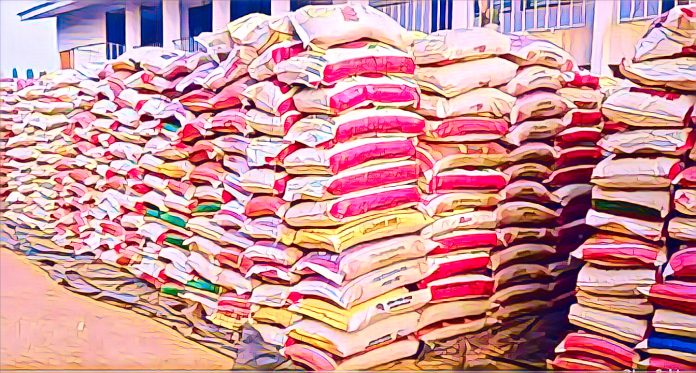President Bola Tinubu’s administration has announced the distribution of 740 trucks of rice across Nigeria amid rising inflation and poverty. Each state and the Federal Capital Territory (FCT) received 20 trucks, each containing 1,200 bags of 25kg of rice.
Minister of Information and National Orientation Mohammed Idris announced after the Federal Executive Council (FEC) meeting. He stated that the President directed the Minister of Agriculture to ensure food availability amid the current hardship. “The rice distribution aims to alleviate the hardship faced by Nigerians,” Idris said. State governors are tasked with ensuring the rice reaches the most vulnerable.
“The council deliberated on Nigeria’s food supply issues,” Idris said. The government is taking steps to ensure food is available to Nigerians. “Twenty trucks of rice have been supplied to each state and the FCT, each carrying 1,200 bags of rice,” he added. This measure is part of a broader effort to reduce hardship and improve food security.
The council acknowledged complaints about transportation, food prices, and shortages. “The government is doing everything to ensure food is on the table for most Nigerians,” Idris emphasized. The initial distribution of rice is a first step. The federal government will continue to support state and local governments to mitigate food shortages.
The government’s efforts extend beyond rice distribution. “The Central Bank of Nigeria has provided over 2.1 million bags of assorted fertilizer for distribution to states,” Idris noted. This support aims to boost agricultural productivity and food supply. Additionally, the newly announced Federal Ministry of Livestock Development will soon begin operations.
The council also discussed the distribution of Compressed Natural Gas (CNG) buses. “The presidential Committee on CNG is directed to expedite its activities,” Idris said. This includes supplying buses and making conversion kits available to Nigerians. The goal is to reduce reliance on Premium Motor Spirit (PMS) and aid the transition to renewable energy.
The government aims to increase the number of CNG conversion centers. “The council directed significant upgrades to conversion centers,” Idris stated. This move will ensure more Nigerians can convert their vehicles to CNG, supporting the country’s energy transition.
Nigeria’s government is taking concrete steps to address food shortages and economic challenges. The distribution of rice and support for agriculture are critical components of this effort. Additionally, promoting CNG buses and conversion kits aligns with the country’s energy transition goals. These measures aim to alleviate hardship and ensure a more sustainable future for Nigerians.



